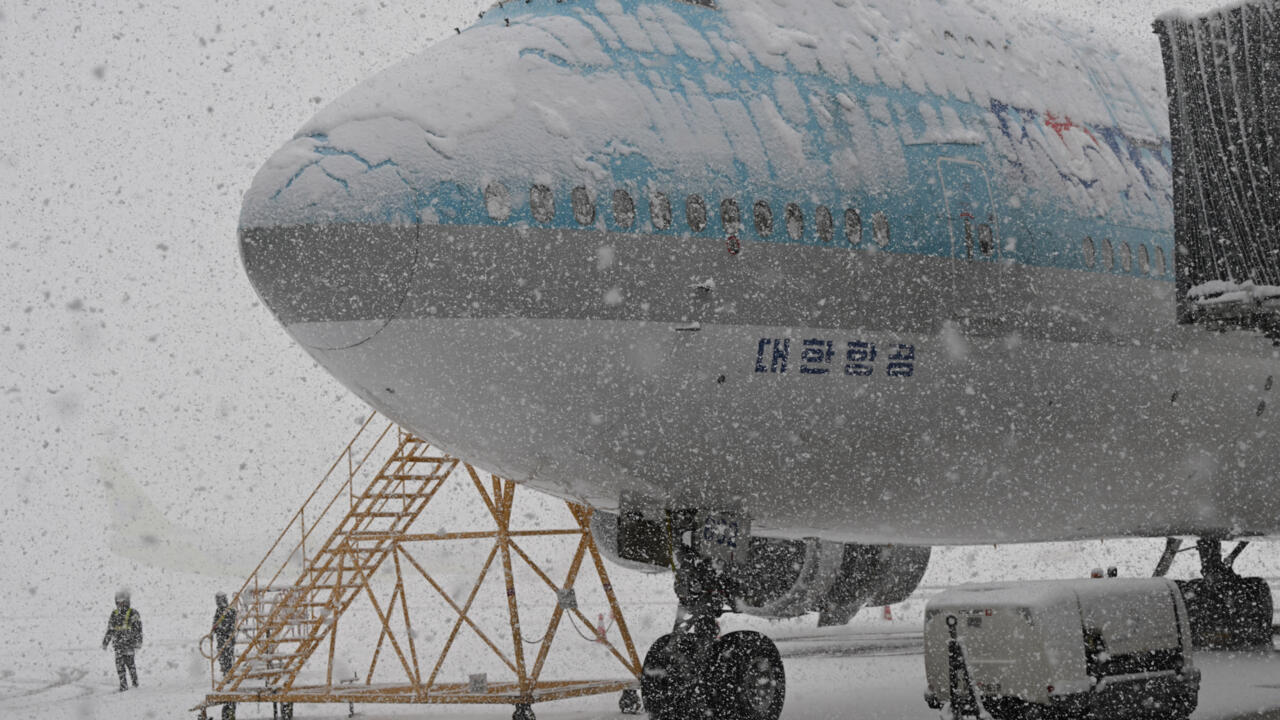The Korea Meteorological Administration said 16.5 centimetres (6.5 inches) of snow fell by 7:00 am (2200 GMT Tuesday), compared to Seoul’s previous record of 12.4 cm on November 28, 1972. Coincidentally being the first snow of the season in Seoul, it is the highest figure in November since the agency set up nationwide observation posts in 1907.
As heavy snow fell nationwide, multiple accidents occurred due to vehicles sliding on icy roads, though no major injuries have been reported. Falling trees caused power outages, affecting more than 150 households around Seoul in the morning. Main roads were closed for maintenance, leading to severe traffic congestion, while at least 22 domestic flights were cancelled, and several others were delayed, according to the transport ministry.
The heavy snowfall was caused by the “significant temperature difference between the sea surface and the cold air,” Youn Ki-han, director at Seoul’s Meteorology Forecast Division, told AFP. “Over the West Sea, moisture forms, and when cold air from the north moves down as it typically does, if the West Sea is also cold as in previous years, the temperature difference is smaller,” said Youn.
Up to 20 cm of additional snowfall is expected to fall around the capital, according to the weather agency.


